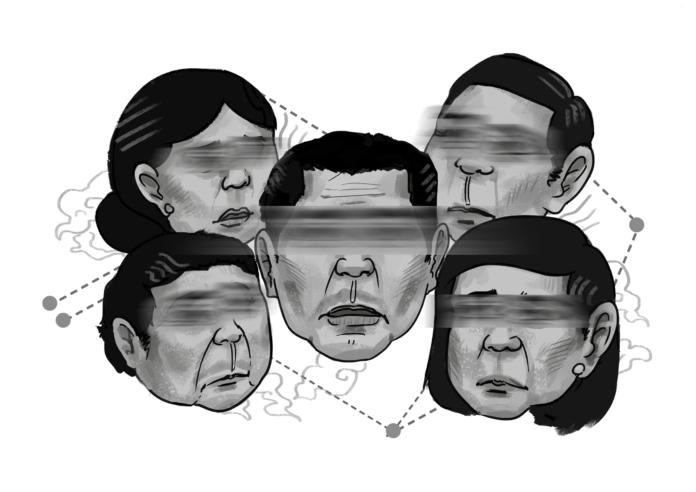CHANGE starts with the youth.
The country has taken the first step against political dynasties in the form of the Sangguniang Kabataan (SK) Reform Act or Republic Act 10742, a law that bans second-degree relatives of government officials from running for posts in the barangay youth council.
Section 10 of the SK Reform Act, which lists down the qualifications of an SK official, states that an SK official “either elective or appointee […] must not be related within the second civil degree of consanguinity or affinity” to any incumbent national or local government official which includes parents, grandparents, siblings and relations by law or marriage such as spouses and in-laws.
The SK Reform Act, authored by Dinagat Islands Rep. Kaka Bag-ao, was signed by President Beniqno Aquino III last Jan. 15. In October, new youth leaders will be elected to the youth councils.
Dennis Coronacion, head of the UST Political Science Department, said the passage of the act marked the first time Congress enacted legislation in accordance with the anti-dynasty provisions of the 1987 Constitution.
Article II, Section 26 of the 1987 Constitution says that the “state shall guarantee equal access to opportunities for public service, and prohibit political dynasties as may be defined by law.”
Civil Law Dean Nilo Divina said constitutional provisions are not “self-executing” and require enabling laws.
“The absence of an enabling law renders the prohibition ineffective in such a way that its extent and legal framework cannot be determined with certainty,” Divina said in an interview.
‘Baby step’
But the SK possesses “relatively small amount of powers” compared with higher elective positions, Coronacion said. The SK Reform Act is just a “baby step,” he said.
“What Congress needs to do in order to prevent the proliferation of political dynasties is to take a big leap,” Coronacion said, stressing the need for an anti-dynasty law.
The age requirement for aspiring SK officials was adjusted to 18 to 24 years old from 15 to 17 years old. This gives SK officials legal liability, since they will be of legal age.
Officials who exceed the age limit under their terms will be allowed to finish their terms.
The new law changed the age bracket of eligible voters to 15 to 30 years old from 15 to 21 years old. The SK Reform Act also mandates the establishment of Local Youth Development Councils to assist in the planning and execution of projects and programs of the SK.
The SK governing body will be composed of a chairman and seven councilors elected by the Katipunan ng Kabataan, the youth assembly of every barangay. They will be joined by an appointed secretary and treasurer. Council members will be required to undergo leadership training.
Aspiring SK officials must have also resided in their barangay “for not less than one year immediately preceding the day of the elections.”
Corruption allegations
First established in 1991, the SK has been hounded with issues of corruption and inefficiency.
A study conducted by the United Nations International Children’s Emergency Fund and the Department of the Interior and Local Government (DILG) in 2007 found the SK’s performance to be “generally weak.”
“This is especially true in terms of coming up with legislation, promoting the development of young people, submitting reports and holding consultations with their constituents,” the study said.
The youth council polls were postponed in 2013 after recurring calls for its abolition led by Caloocan City Rep. Edgar Erice.
In an earlier Varsitarian story, Erice blamed corrupt barangay officials for misguiding youth leaders, instead of training them to be good leaders.
There were no temporary appointments during the period of vacancy, which lawmakers time to pass reforms into law.
In February and March, the DILG conducted interagency workshops to come up with implementing rules for the SK Reform Law.

















